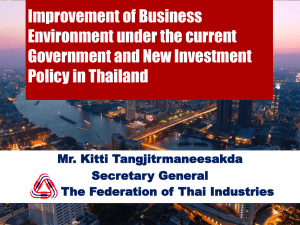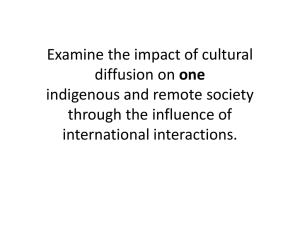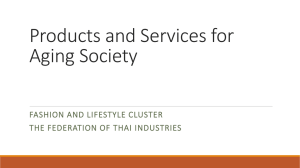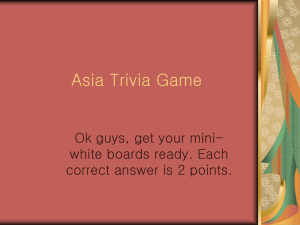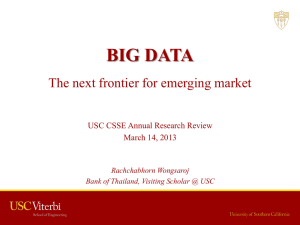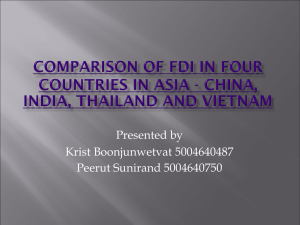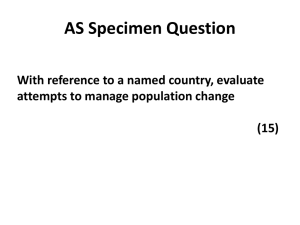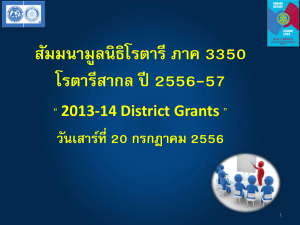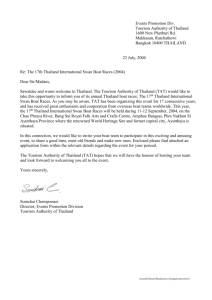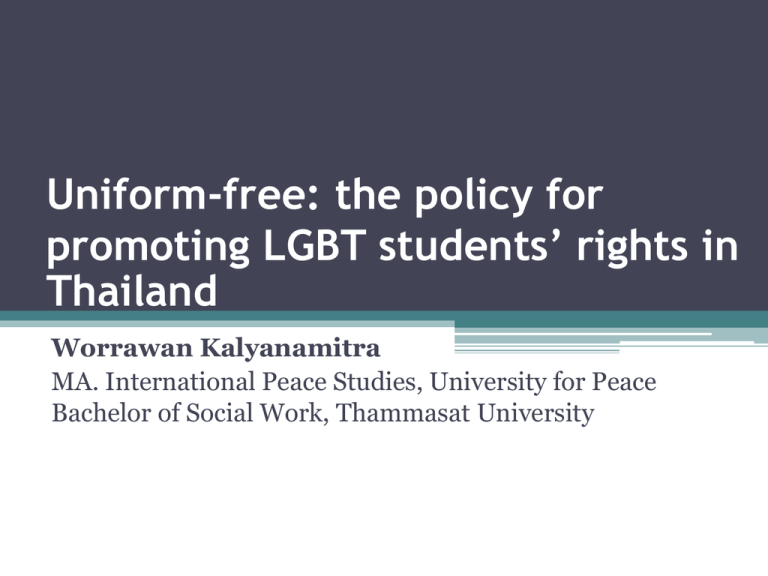
Uniform-free: the policy for
promoting LGBT students’ rights in
Thailand
Worrawan Kalyanamitra
MA. International Peace Studies, University for Peace
Bachelor of Social Work, Thammasat University
Introduction
• To study the possibility of uniform-free policy
and flexible uniform policy based on
interviewees’ perspectives
• To situational analyze by conflict analysis model
– C.R. SIPABIO and Five Steps of Effective
Advocacy
• To provide recommendation for LGBT students’
rights promotion
Background
• Strict uniform policy: students have to wear
uniform based on their gender of birth.
• LGBT students; esp. Lesbian and Transgender,
encounter difficulty with such policy and it leads
to lack of confidence and insecurity while
studying in school.
• Few educational institutes offer flexible uniform
policy regarding to LGBT students’ rights
promotion.
Uniform: positive VS negative
Positive
Negative
Orderliness
Creativity limitation
Social norm
Identity framing
Wearer protection
Hierarchical support
C.R.SIPABIO:
situational analysis
•Structural and cultural
violence
•Imbalance power
•Lack of data
•Discrimination: value,
attitudes, behavior
Five Steps of
Effective Advocacy
Evidence
Policy fit
Solution
Advocacy strategy
Art of advocacy
The possibility of uniform-free
policy and flexible uniform policy
Possible
Impossible
Private
Public
Unknown
Famous
Small
Big
LGBT students’ rights promotion
• Flexible uniform
policy
• LGBT’s toilet
• Sex education
• Social diversity concept
References:
• Abdalla A. et al. 2002. Understanding C.R. SIPABIO: A Conflict
Analysis Model. University for Peace, Costa Rica
• Kalyanamitra W. 2010. Assessing the viability of legalizing abortion
as a safety-net for women enduring unwanted pregnancy. The
research report is submitted in partial fulfillment of the requirements for
the degree of Master of Arts, Asian Leaders Program, Department of Peace
and Conflict Studies
• Kalyanamitra W. 2012. BePeace concept: the innovation to develop
social work for current social change and sustainable
development. Paper presented to University-Community Engagement
Conference – UCEC, 9th – 12th January 2012, Chiangmai, Thailand.
• Learning Enhancement Center. 2009. List of schools in
Thailand.http://www.idis.ru.ac.th/report/index.php?topic=469.0
• Maliphan C. 2008. Positioning Magazine.
http://www.positioningmag.com/magazine/details.aspx?id=70487
• Runckel C. 2008. Education in Thailand. http://www.business-inasia.com/thailand/education_in_thailand.html
References (cont.)
• Sanders D. 2007. LGBT Rights in a New Constitution: Thailand’s
International Obligations. Document for academic seminar on Human
Rights of Lesbians, Gays, Bisexuals, Transgender and Intersex People.
Bangkok: Rainbow Sky Association of Thailand.
• Tangkananuluck W. 2007. Student Uniform Law.
http://childmedia.net/node/269
• Trevor Shilton. 2012. Five Steps of Effective Advocacy. Document for
NCD Advocacy training in Thailand – Scope, objectives, approach, 14th –
16th June 2012 Thailand
worrawanupeace@gmail.com

